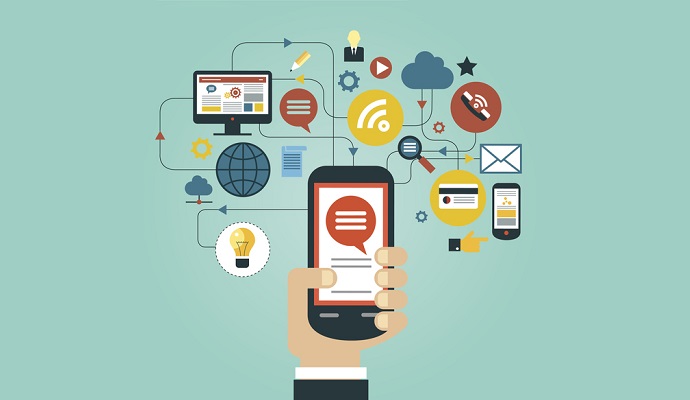Source – https://healthitanalytics.com/
Machine learning tools analyzed tweets about COVID-19 and showed that social media can significantly influence people’s health beliefs.
Using machine learning, researchers found that people’s biases about COVID-19 and its treatments are exacerbated when they read tweets from other users, a study published in JMIR showed.
The analysis also revealed that scientific events, like scientific publications, and non-scientific events, like speeches from politicians, equally influence health belief trends on social media.
The rapid spread of COVID-19 has resulted in an explosion of accurate and inaccurate information related to the pandemic – mainly across social media platforms, researchers noted.
“In the pandemic, social media has contributed to much of the information and misinformation and bias of the public’s attitude toward the disease, treatment and policy,” said corresponding study author Yuan Luo, chief Artificial Intelligence officer at the Institute for Augmented Intelligence in Medicine at Northwestern University Feinberg School of Medicine.
“Our study helps people to realize and re-think the personal decisions that they make when facing the pandemic. The study sends an ‘alert’ to the audience that the information they encounter daily might be right or wrong, and guide them to pick the information endorsed by solid scientific evidence. We also wanted to provide useful insight for scientists or healthcare providers, so that they can more effectively broadcast their voice to targeted audiences.”
Researchers set out to evaluate individuals’ COVID-19-related health beliefs on Twitter. The team retrospectively collected COVID-19-related tweets using the Twitter API. In total, they gathered 92,687,660 tweets corresponding to 8,967,986 users from January 6 to June 21, 2020. To train the machine learning model, the team randomly selected 5,000 of the tweets for annotation.
Researchers used machine learning to review each tweet doubly to determine if they met any of the four core constructs of the health belief model (HBM), a framework developed to investigate people’s beliefs about health problems. The HBM’s four core constructs include perceived susceptibility, perceived severity, perceived benefits, and perceived barriers.
The results showed that the machine learning tools achieved areas under the receiver operating characteristic curve of 0.86 for the classification of all four HBM constructs. The team pointed out that fluctuations in the number of health belief-related tweets could reflect dynamics in case and death statistics, systematic interventions, and public events.
Specifically, researchers found that scientific events and non-scientific events were comparable in their ability to influence health belief trends on social media.
“Our findings demonstrated that trends in health beliefs were correlated with dynamics in positive case and mortality rates. Additionally, we observed a decline in perceived disease susceptibility during government-issued lockdowns, while perceived severity appeared unaltered. Lastly, our study identified top news events, scientific and nonscientific, that may play a role in altering health beliefs,” researchers said.
“These findings lay the groundwork to better understand how the general public’s COVID-19-related health beliefs are influenced by case and mortality rates, government policies, current news, and significant events.”
The group noted that this study is unique in that integrates machine learning algorithms with classic epidemiology models to retrospectively investigate the contents on social media and its effects. Researchers also worked to improve the machine learning model’s interpretability, allowing other investigators to understand how this algorithm works.
“We identified the fluctuating trends of public attitudes from the tweets, then aligned the important scientific and non-scientific events that are associated with these trends,” Luo said. “As a result, we are offering insights people can take action on.”
The research team is currently integrating machine learning and deep learning to understand how social media can impact the general public’s attitude toward COVID-19 vaccines. The overall aim of this effort is to identify specific public concerns and inform targeted vaccination campaigns to maximize inoculation impact. Additionally, the group is exploring the use of social media to detect gender and racial disparities during and beyond the pandemic.
The team expects that their study can help inform public health strategies for reducing the spread of COVID-19 misinformation.
“The excessive information disseminated on social media platforms and other sources is closely related to the dynamics of the general public’s health beliefs. The dynamics of the pandemic, news, scientific and nonscientific events, and even the related tweets already published on social media platforms may influence the health beliefs of the general public on social media to some extent,” researchers concluded.
“Our findings provide clues and evidence for more effective management of the infodemic associated with the COVID-19 pandemic.”
Data analytics tools and social media platforms have played a significant role in tracking the attitude of the public throughout the pandemic. In May 2020, a team from Penn Medicine showed that public health officials can use natural language processing techniques to track surges in interest in COVID-19 topics on online forums like Reddit.
“Public health priorities do not always align with community priorities, and the success of public health efforts often depends on having a plan to address community concerns,” said Daniel Stokes, a research fellow with the Center for Emergency Care Policy and the Center for Digital Health at Penn Medicine.
“Having a source like Reddit that is directly tied to people’s thoughts could prove invaluable in crafting plans that meet people where they are.”
